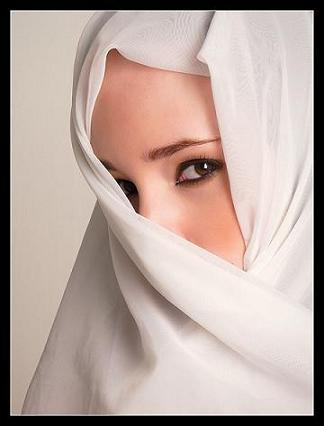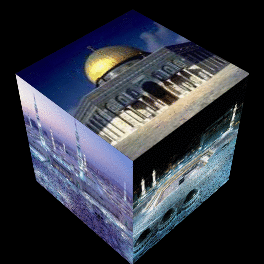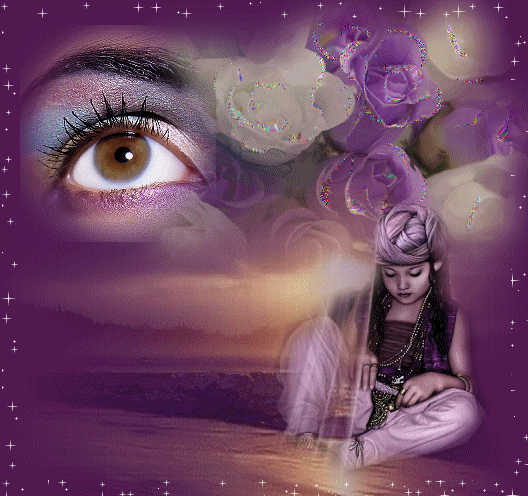From the Book " The Ideal Muslimah" Chapter 1
She Regularly Prays Five Times a Day
She offers each of the five daily prayers at its appointed time, and does not let domestic chores or
her duties as a wife and mother prevent her from doing so.
Prayer is the link between the servant and his (Rabb). It is the rich source from which a person
derives strength, steadfastness, mercy and contentment, and it is a means of cleansing the stain of
his or her sins:
Abu Hurayrah (RAA) narrated:
"I heard the Messenger of Allah (PBUH) say: `What would you think if there were a river
running by the door of any of you, and he bathed in it five times every day, would any trace
of dirt be left on him?' The people said: `There would be no trace of dirt on him.' He said:
`This is like the daily prayers, through which Allah (SWT) erases sins.'" (Sharh al-
Sunnah 2/175).
Prayer in the Mosque
Islam has excused women from the obligation to attend the jama`ah prayer in the mosque, but at
the same time, they are permitted to go out of the house to attend jama`ah on condition that they
dress up well enough not to cause any temptation. Indeed, the first Muslim women did go out and
pray in the mosque behind the Prophet (PBUH).
`A'ishah (May Allah be pleased with her) said:
"The Messenger of Allah (PBUH) used to pray fajr, and the believing women would pray with
him, wrapped up in their outer garments; then they would go back to their homes, and
nobody would recognize them."
The Prophet (PBUH) said:
"Do not prevent your women from attending the mosque if they seek your permission to do
so."
"Do not prevent the female servants of Allah (SWT) from attending the mosques of Allah
(SWT)."
"If your womenfolk seek your permission to go to the mosque, then let them do so."
She Attends Eid Prayers
Islam has honoured woman and made her equal with man as regards obligatory acts of worship.
Women are also encouraged to attend public gatherings on Eid al-Fitr and Eid al-Adha, so that they
may take part in these blessed occasions.
We find this in a hadith narrated by Bukhari and Muslim from Ibn
Jurayj, who said:
"`Ata' told me: "I heard Jabir ibn `Abdullah say: `The Prophet (PBUH) stood up on the
occasion of Eid al-Fitr and led the people in prayer. He began the prayer before the khutbah.
Then he addressed the people. When the Prophet of Allah (PBUH) had finished his khutbah,
he came to the women and spoke to them, whilst leaning on Bilal's arm, and Bilal spread out
his cloak for the women to put their sadaqah in it.'" I [Ibn Jurayj] said to `Ata', `Was it zakat
al-fitr?' He said, `No, it was the sadaqah that they gave at that time; one woman threw her
ring into it, then others followed her lead.' I said to `Ata', `Is it a duty nowadays for the
imam to come to the women and address them when he has finished his khutbah?' He said,
`It most certainly is. This is a duty on them (imams); what is wrong with them that they do
not do that nowadays?'"
According to this hadith, the Prophet (PBUH) exhorted and reminded the women, and accepted the
sadaqah that they themselves willingly gave.
She Prays Sunnah and Nafil Prayers
The Muslim women does not limit herself to the five daily obligatory prayers; she also prays those
sunnah prayers which the Prophet (PBUH) used to perform regularly (al-rawatib), and prays as
many of the nafil (supererogatory) prayers as her time and energy allow. These prayers include
salat al-duha, sunnah prayers following maghrib, and prayers offered at night. Nafil prayers bring a
person closer to Allah (SWT), earn him or her the love and pleasure of Allah (SWT), and make him
or her one of the victorious, obedient and righteous ones. There is no clearer indication of the great
status attained by the believer who draws closer to Allah (SWT) by performing nafil deeds than the
hadith qudsi:
"My servant continues to draw near to Me with supererogatory works so that I will love him.
When I love him, I am his hearing with which he hears, his seeing with which he sees, his
hand with which he strikes, and his foot with which he walks. Were he to ask [something] of
Me, I would surely give it to him; and were he to ask Me for refuge, I would surely grant him
it."
She Performs Her Prayers Properly
The true Muslim tries hard to perform her prayers properly, with deep concentration and precision
of physical movements. She thinks about the meaning of the ayat she is reciting, and the words of
praise and glorification that she is uttering. Her soul is flooded with fear of Allah (SWT), and with
gratitude to Him and sincere worship of Him. If the Titan happens to whisper some idea to her
during the prayer, to distract her from concentrating properly, to keep him away she focuses on
the words that she is reciting from the Qur'an, and the words of praise that she is uttering.
The Muslim woman does not rush back to her housework and chores when she has finished her
prayer. Rather, as the Prophet (PBUH) used to do, she asks Allah (SWT)'s forgiveness by saying
"Astaghfir-Allah" three times, and repeats the du`a': "Allahumma anta al-salam wa minka alsalam,
tabaraka ya dha'l-jalali wa'l-ikram (O Allah (SWT), You are Peace and from You comes
peace, Blessed are You, O Lord of majesty and honour.)"50 Then she repeats the adhkar and
du`a's that the Prophet (PBUH) is known to have recited after completing his prayer. There are
many such adhkar51, one of the most important of which is to repeat "Subhan Allah" thirty-three
times, "La ilaha ill-Allah" thirty-three times, "Allahu akbar" thirty-three times, then to complete one
hundred with "La illaha ill-Allah wahdahu la shaika lah, lahu'l-mulk wa lahu'l-hamd, wa huwa `ala
kulli shayin qadir." According to a sahih hadith, the Prophet (PBUH) said:
"Whoever glorifies Allah (SWT) (says subhan Allah) after every prayer thirty three times,
praises Allah (SWT) (says al-hamdu lillah) thirty three times, and magnifies Allah (SWT)
(says Allahu akbar) thirty-three times, which adds up to ninety-nine, then completes one
hundred by saying La illaha ill-Allah wahdahu la shaika lah, lahu'l-mulk wa lahu'l-hamd, wa
huwa `ala kulli shayin qadir, his sins will be forgiven, even if they were like the foam of the
sea."
Then she turns to Allah (SWT) humbly asking Him to correct all her affairs, in this world and next,
and to bless her abundantly and guide her in everything.
Thus the Muslim woman finishes her prayers, purified in heart and mind and reinvigorated with a
dose of spiritual energy, which will help her to cope with the burdens of everyday life, knowing that
she is under the protection of Allah (SWT). She will not panic if anything bad befalls her, nor will
she become miserly if she enjoys good fortune. This is the attitude of those righteous women who
pray and fear Allah (SWT):
( Truly man was created very impatient; Fretful when evil touches him; and
niggardly when good reaches him. Not so those devoted to Prayer. Those who
remain steadfast to their prayer; And those in whose wealth is a recognized right
For the [needy] who asks and him who is prevented [for some reason from asking]) (Qur'an 70:19-25)


















